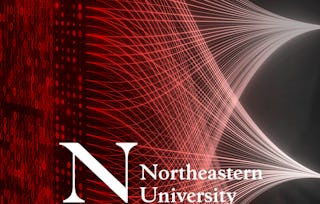This course will guide you through the essential principles of algorithms and their significance in computational problem-solving. You'll begin by exploring what an algorithm is, its core characteristics, and how it applies to real-world scenarios—from simple everyday tasks to complex computing challenges. As you progress, you will learn about the critical role algorithms play in improving efficiency and scalability across various fields. We’ll break down key concepts such as algorithmic complexity, helping you evaluate the efficiency of different approaches, which will ultimately guide your decision-making.

Data Structures & Algos: Software Development Skills

Skills you'll gain
Details to know

Add to your LinkedIn profile
18 assignments
See how employees at top companies are mastering in-demand skills

There are 4 modules in this course
In this module, you will be introduced to the foundational concept of algorithms, including their characteristics and how they are integral to solving computational problems. You’ll explore the basics of algorithmic complexity and efficiency, providing a strong foundation for the advanced topics in subsequent modules.
What's included
1 video9 readings2 assignments1 discussion prompt
In this module, you will explore the powerful and elegant Gale-Shapley algorithm, originally developed to solve the stable marriage problem. This algorithm, widely used in real-world applications such as college admissions and job matching, ensures that individuals are paired in a way that avoids instability—where two participants could form a better match with someone else. By understanding the principles behind stable matching and the mechanics of this algorithm, you'll gain insight into one of the most influential solutions in game theory, optimization, and computer science.
What's included
1 video12 readings5 assignments
What's included
1 video13 readings5 assignments
In this module, you'll begin by summarizing key concepts like computational tractability, asymptotic growth, and the notations used to evaluate algorithm efficiency. You'll then dive into time complexity, learning how to optimize algorithms for different scenarios and classify them into appropriate complexity classes. By the end, you'll be able to apply these analysis techniques to real-world problems, optimizing solutions while considering the implications and limitations of algorithm analysis.
What's included
1 video14 readings6 assignments
Instructor

Offered by
Explore more from Algorithms
 Status: Preview
Status: PreviewBirla Institute of Technology & Science, Pilani
 Status: Free Trial
Status: Free Trial Status: Preview
Status: PreviewNortheastern University
 Status: Preview
Status: PreviewNortheastern University
Why people choose Coursera for their career

Felipe M.

Jennifer J.

Larry W.

Chaitanya A.

Open new doors with Coursera Plus
Unlimited access to 10,000+ world-class courses, hands-on projects, and job-ready certificate programs - all included in your subscription
Advance your career with an online degree
Earn a degree from world-class universities - 100% online
Join over 3,400 global companies that choose Coursera for Business
Upskill your employees to excel in the digital economy
Frequently asked questions
To access the course materials, assignments and to earn a Certificate, you will need to purchase the Certificate experience when you enroll in a course. You can try a Free Trial instead, or apply for Financial Aid. The course may offer 'Full Course, No Certificate' instead. This option lets you see all course materials, submit required assessments, and get a final grade. This also means that you will not be able to purchase a Certificate experience.
When you purchase a Certificate you get access to all course materials, including graded assignments. Upon completing the course, your electronic Certificate will be added to your Accomplishments page - from there, you can print your Certificate or add it to your LinkedIn profile.
Yes. In select learning programs, you can apply for financial aid or a scholarship if you can’t afford the enrollment fee. If fin aid or scholarship is available for your learning program selection, you’ll find a link to apply on the description page.
More questions
Financial aid available,

